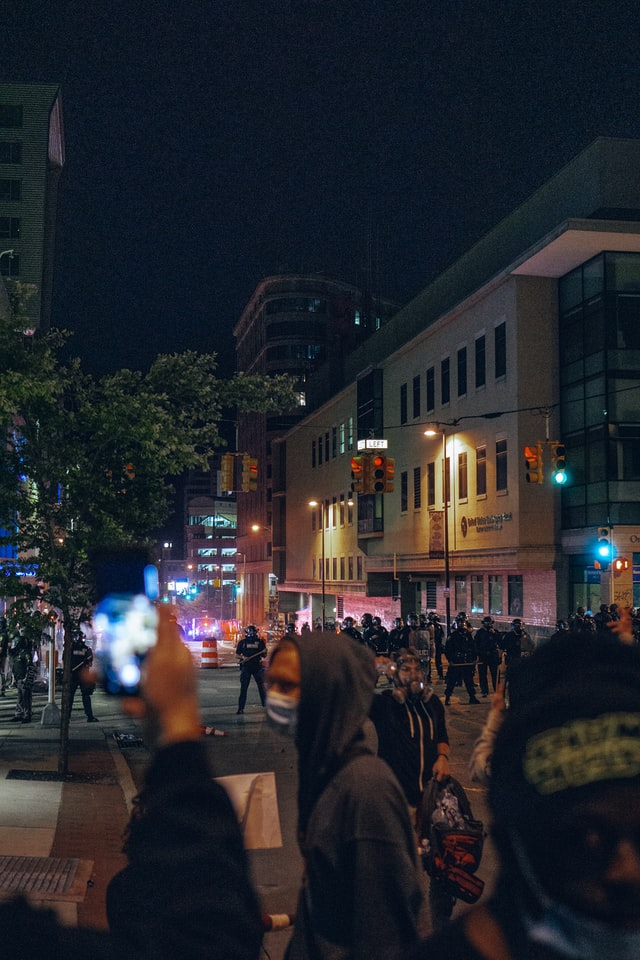Facial recognition used to identify Lafayette Square protester accused of assault
By Justin Jouvenal, Spencer Hsu,
The Washington Post
| 11. 22. 2020
A line of U.S. Park Police officers pushed protesters back from Lafayette Square on June 1, firing pepper balls and rolling canisters spewing irritant gas into the retreating crowds on H Street NW, video shows.
Amid screams and smoke, a man in a tie-dye T-shirt pulled an officer to the ground and punched him in the face, before disappearing into the chaos, according to charging documents.
The man grabbed another officer, before police caught up with him and attempted to make an arrest, authorities said. But the man wrestled free and vanished once again.
The protester might never have been identified, but an officer found an image of the man on Twitter and investigators fed it into a facial recognition system, court documents state. They found a match and made an arrest.
The court documents are believed to be the first public acknowledgment that authorities used the controversial technology in connection with the widely criticized sweep of largely peaceful protesters ahead of a photo op by President Trump. The case is one of a growing number nationwide in which...
Related Articles
By Teddy Rosenbluth, The New York Times | 02.09.2026
Dr. Mehmet Oz has urged Americans to get vaccinated against measles, one of the strongest endorsements of the vaccine yet from a top health official in the Trump administration, which has repeatedly undermined confidence in vaccine safety.
Dr. Oz, the...
By Ava Kofman, The New Yorker | 02.09.2026
1. The Surrogates
In the delicate jargon of the fertility industry, a woman who carries a child for someone else is said to be going on a “journey.” Kayla Elliott began hers in February, 2024, not long after she posted...
By Alex Polyakov, The Conversation | 02.09.2026
Prospective parents are being marketed genetic tests that claim to predict which IVF embryo will grow into the tallest, smartest or healthiest child.
But these tests cannot deliver what they promise. The benefits are likely minimal, while the risks to...
By Lauren Hammer Breslow and Vanessa Smith, Bill of Health | 01.28.2026
On Jan. 24, 2026, the New York Times reported that DNA sequences contributed by children and families to support a federal effort to understand adolescent brain development were later co-opted by other researchers and used to publish “race science”...




